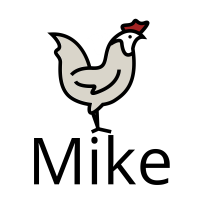For me, it may be that the toilet paper roll needs to have the open end away from the wall. I don’t want to reach under the roll to take a piece! That’s ludicrous!
That or my recent addiction to correcting people when they use “less” when they should use “fewer”


The “is a hot dog a sandwich” and similar discussions are solved with the mighty sword of language and not some rigid taxonomy about fillings and bread.
Imagine a set of food items on a table, hot dog amongst them, but not other pseudo-sandwiches. I ask you to “Please pass me that sandwich.” If there is but a moment’s pause in your mind before you reach for the hot dog, even if it’s as you surmise I must be speaking about the hot dog as there are no other sandwich-like items available, then it is not a sandwich.
My reasoning is that a hotdog is a sausage. When you say you want a sandwich, you don’t say “pass me a ham” you say “pass me a ham sandwich.” When ordering a named sandwich, “I’ll have a Ruben” it’s widely understood that a Ruben is a sandwich so the modifier is already packaged in the name. A sandwich has “Sandwich” as a defining modifier.
When you ask for a hotdog you don’t say, “give me a hotdog sandwich” you say, “give me a hotdog.” The same situation works with bratwurst, you don’t order a brat sandwich. To further reinforce this, if you’re in the south and central US and order a Hotlink it comes on it’s own or in a hotdog bun but if you order a “hotlink sandwich” you get two hotlinks cut length wise and placed on a hamburger bun or bread.
A sausage can have a bun as a condiment and still be just a sausage. A sandwich can have sausage, but is still refered to as a sandwich. So a hotdog is a sausage served with bread, not a sandwich.
Psycholinguisitics understands this effect. The “wrong” word is increasing cognitive load and slowing down the listener’s comprehension. The exact same thing happens when pronoun use is unclear and a person has to parse the most likely referent from context.
Language, especially English, is not computer code but leveraging the existing “libraries” of meaning and declaring variables carefully is usually very useful.
I wish we had a dialect or subset of English that was intended to be more like computer code, and would be used for precisely specifying things. I have no idea how we’d do such a thing, and it’d never be adopted (and probably it’s been tried!). But trying to write English in a way that can’t be misinterpreted can be a real chore.
This does exist in professional disciplines as jargon. I work in Orthopaedics and we do not say the “over here, inside part of my knee in the front. “. We say, “inferior, medial pole of the patella”